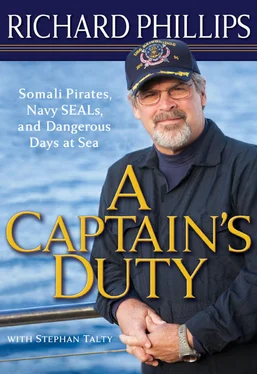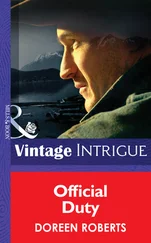I guess I did have something to learn about being part of a team.
I loved sports, but I bucked against the restrictions. It was the same with basketball. The JV coach called me and a guy named Gunk Johnson after a practice early in the season and turned to me first and said, “Phillips, I’m not going to play you because your father didn’t play me when I was a student. And Gunk, I’m not going to play you because I don’t like you.” He thought he’d run us out of there. When the coach asked us what we were going to do, Gunk and I looked at each other and then I said, “Coach, we’re gonna stick.”
That was my motto: I’m gonna stick. Especially if you try to push me.
I guess right then you’d have pegged me for the merchant marine. Every guy I met in the merchant marine had stories like that. We weren’t the kids who made class president. We were the guys who rode beat-up motorcycles to school, played the offensive line, and drank in the Fells, the nearby woods where all the kids hung out. We went our own way. We were the square pegs someone tried to smash into a round hole and said, “Nope, not gonna do it.”
In 1975, I was well on my way to fulfilling my detractor’s prediction that I wouldn’t do very much with my life. I’d had a few jobs, working as a security guard at Raytheon, shuttling checks to the Federal Reserve from the local banks, and driving a taxi. I was a hack in Arlington, a town north of Boston. It didn’t have much of a future, but it was colorful. One time a guy I’d never seen before jumped in my cab, gave me an address, and told me he had to go in and get the money. I pulled around back, expecting him to try to pull a fast one on me, but within a minute a woman came screaming out the door and jumped in a car, followed by this maniac. He jumped in my cab and screamed, “I’ll give you twenty bucks if you can catch her.” It was clear to me that the man and the woman were caught up in some wild domestic drama—which I never got to the bottom of—and I’d suddenly landed in the middle of it. I hit the gas and we went through the streets of Arlington like the chase scene from Bullitt . Finally I pulled even with the woman and saw her terrified face through the window. That’s when my fare yelled, “Run her off the road!” Apparently, he thought I was a hit man, not a cab driver. I pulled over, collected my $20 for catching her, then threw him out of the cab.
I learned a lot. It’s a tough job and you can’t go by the book; you have to use your imagination. But I had no real direction, no real plan for myself in life. I’d gone to the University of Massachusetts at Amherst, mainly because my parents were both teachers and wanted me to give college a shot. I’d studied animal science, because I wanted to be a vet. But one class, in which I had to use a slide rule, told me I wasn’t cut out for college. I dropped out after my first semester, the victim of too much partying, too many girls, and not enough hitting the books. If there was anything wild going on at that campus in the fall of 1974, I was probably around it.
So I became a taxi driver. And one day I was coming out the back way of Logan Airport when I picked up a sharp-looking guy with pressed dungarees and a leather jacket that looked like it cost a thousand bucks. I was impressed. “Where you going?” I asked the guy. “I want some action,” he said. Not an unusual request in the city of Boston in the mid-seventies.
“What kind of action are you looking for?”
“I want booze and I want broads,” he said.
“Okay, I can do that,” I said. I cranked the meter and headed for the Combat Zone, which in those days was a single street packed with college girl revues and blazing neon signs even during the day. You could get anything in the Combat Zone, and I mean anything. You want a double-jointed Romanian girl who plays Beethoven concertos and excels in field hockey? Done. You want a rocket-propelled grenade and an old-fashioned? Done. I mean, the place never let you down. It was Disney World for adults.
When we got to the Zone, the guy’s eyes got big in my rearview mirror. “This’ll do?” I said. He nodded. “This is good.”
It was a $5 fare and he tipped me $5. I’d walked twenty bags up ten flights of stairs for an old lady and been handed a twenty-five-cent tip, so $5 got my attention. As he got out, I asked the guy what he did for a living. That was my personal form of career counseling. If I got someone in the back of my cab who looked like he was interesting and who threw money around like it was confetti, I asked him what his job was.
“I’m a merchant mariner,” he said.
I nodded. “What’s that?”
“Well, we carry cargo in ships.”
“Sounds exciting.”
Which it didn’t. What sounded exciting is pulling into a port at ten thirty in the morning and going to a place like the Combat Zone with a pocketful of cash and the nicest leather jacket in Boston, looking for a good time all by himself.
As he was walking into some strip joint, I yelled after him, “Hey, how do you get into that?”
The guy had probably been at sea for three months and he really didn’t want to spend any more time talking to a male college dropout. “Here,” he said, and he handed me a card with the address of a seaman’s school in Baltimore. Then he was gone.
I wrote the school but never heard back. I forgot about it until my brother Michael came back to Boston and showed up at a keg party I was hosting in my apartment. He was at the Massachusetts Maritime Academy down in Buzzards Bay, and he gave it a glowing review. “It’s not bad,” he said, over a plastic cup of frosty cold Falstaff beer. “They don’t shave your head. It’s not really a military academy, there are not really any uniforms, there’s not a lot of discipline and when you get out, you can stay home six months out of the year.” I was working two jobs, making $220 a week, and I was ready for something new. I’d always liked Jack Kerouac and the idea of traveling the world looked better after every shift hauling prostitutes and businessmen around Boston. My neighbors Mrs. Paulson and Mr. Muracco worked hard and were instrumental in getting me accepted at the Academy, and my high school varsity basketball coach wrote a letter to the coach there recommending me. A few months later, I was in. I couldn’t wait to go.
I drove to the campus in my VW bus, nearly cross-eyed with a massive hangover from a final blowout my friends had thrown the night before. I rolled in feeling like John Belushi after an all-night toga party. The MMA’s campus is tiny, a group of maybe six dorms, a training ship, a few classroom buildings, an administration center, and a library. When I first saw it, I thought, This doesn’t look too bad. And the admiral who greeted us was very polite, especially to the parents. “Today you lost your boy,” he said at one point. “When we return him to you, he’ll be a man.”
When the last parents’ car had cleared the parking lot, the instructors turned and started screaming at us. We weren’t these bright young men to be cherished anymore. We were “youngies,” and youngies were worth about as much as spit on pavement. The instructors screamed at us as they herded us into a barbershop to get our heads shaved and screamed at us while they marched at double-time all over the campus before ending the day by screaming at us for no reason at all. The MMA turned out to be a true-blue military school where they broke you down before they built you into a merchant seaman. I had to give it to my brother. He’d gotten me good.
We went through a year of constant hazing. There was an admiral called Shakey who was supposedly in charge of the academy, but the upperclassmen ran the school. You’d be walking down the hall and a three-striper—a junior—would come around a corner and demand you list the twenty-five things found in all lifeboats, in alphabetical order. If you couldn’t do it, you had to drop and give him twenty push-ups. On the summer cruise to Bermuda, they’d dress you in four layers of clothing including a winter coat, gloves, hat, and goggles and take you into the engine room on the training ship in the middle of summer, where the temperature hits 160 degrees, and work you until you dropped from dehydration. And you had to suck a lollipop through the whole thing, don’t ask me why. If you ratted on a classmate, they’d cut a fire hose, slip the end under your door, and turn it on full blast. Say good-bye to your stereo equipment and your camera, pal. If you messed with a four-striper—a senior—the boys would have what they called a “blanket party.” You’d be sleeping in your bunk, and all of a sudden a blanket would be thrown over your head and ten upperclassmen would pummel you to within an inch of your life. Or the upperclassmen would ambush you in a place called Four Corners. People had nightmares about that place. You’d turn the corner and there would be a gang of stripers lying in wait. They’d immediately begin screaming for us to “be a steam engine.” One guy would be the vertical piston, another would be the prop and the shaft and the steam drum, which meant you were running in circles or pumping your body up and down or making a damn fool of yourself in some other way. For hours.
Читать дальше












